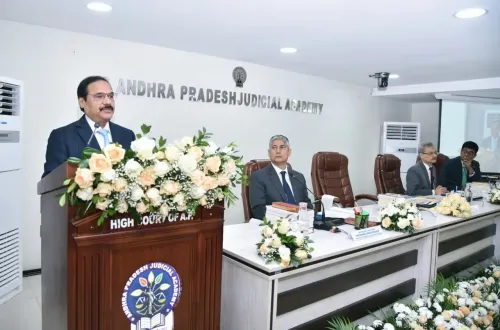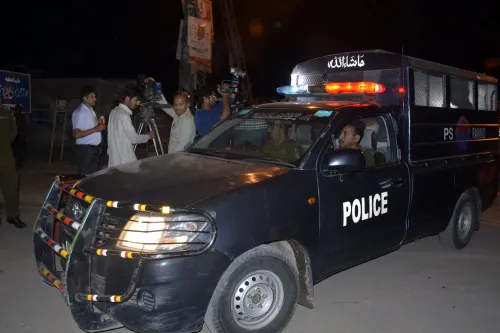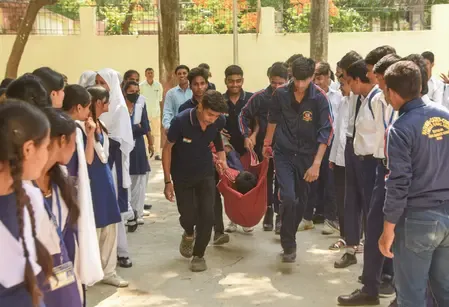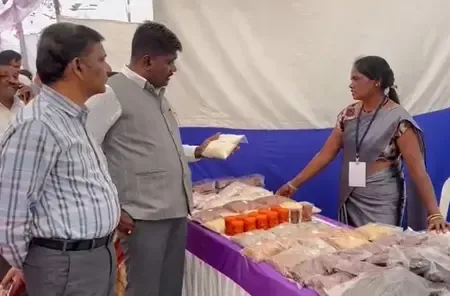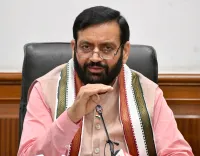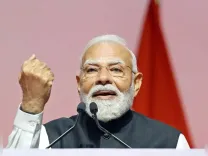What Did the Calcutta HC Report Reveal About Murshidabad Violence?
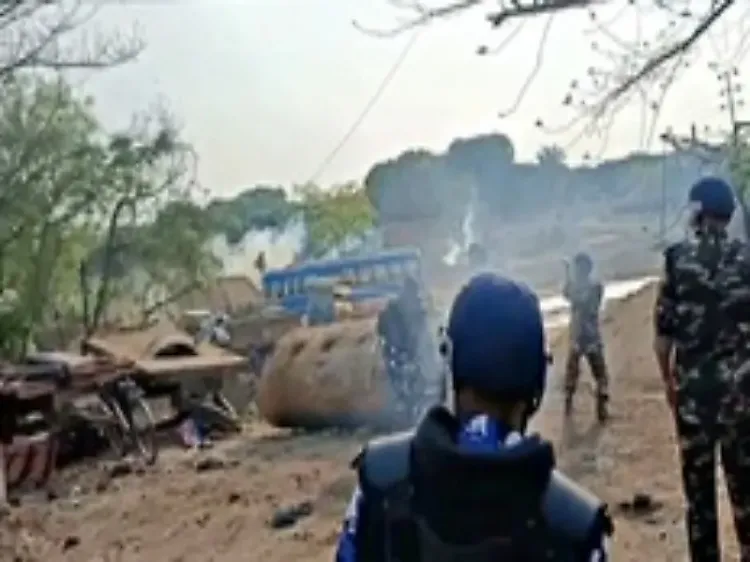
Synopsis
Key Takeaways
- Police negligence led to escalated violence.
- Local Trinamool Congress leaders implicated.
- CAPF deployment was delayed.
- Significant public discontent towards elected officials.
- Potential electoral consequences for the ruling party.
Kolkata, May 21 (NationPress) A recent report from a three-member committee set up by the Calcutta High Court to investigate the communal unrest in Muslim-majority Murshidabad district of West Bengal last month has highlighted significant police negligence and a lack of action to control the situation prior to the arrival of the Central Armed Police Forces (CAPF). The report also pointed fingers at local Trinamool Congress leaders as the key orchestrators of the violence.
Sources indicate that these findings have left the ruling party feeling quite unsettled and anxious.
Despite the top leadership of the Trinamool Congress, including Chief Minister Mamata Banerjee, remaining silent on the report released on Wednesday, a maverick party legislator from Bharatpur constituency in Murshidabad, Humayun Kabir, expressed concerns over the adverse effects of the report on the party's electoral prospects for the upcoming assembly elections.
“A total of 65 cases were initiated regarding the Murshidabad violence, with numerous arrests made and several families displaced as a result. This will undoubtedly influence the voting behavior next year,” Kabir stated to reporters on Wednesday.
He further acknowledged that the residents of Murshidabad harbor several grievances against certain elected officials from the ruling party.
“Moreover, the public is quite discontented with how the state administration managed the violence,” Kabir remarked.
In the committee's findings, local Trinamool Congress councillor Mehbub Alam and another party figure, Amirul Islam, were identified as the main instigators of the violence, against whom police took no action during the unrest.
According to the report, all attacks initiated on April 11 from 2 p.m. onward were led by Mehbub Alam from the scene, while Amirul Islam allegedly arrived to identify houses yet to be targeted, subsequently informing the assailants to set those homes ablaze.
While Alam has vehemently denied these allegations, asserting he was not present at the time of the unrest, Islam could not be reached for comment.
Simultaneously, the state’s leadership has been vocally criticizing the state administration, claiming that the police intentionally allowed individuals from a specific community to wreak havoc for nearly four days before the deployment of CAPF, following an order from the Calcutta High Court.
BJP's state president in West Bengal and Union Minister of State Sukanta Majumdar criticized the state government for initially attempting to portray the violence as caused by outsiders, a narrative debunked by the committee's report.
"The report explicitly states that local miscreants conducted the assaults while concealing their identities. The state government continues to shield those responsible for the communal violence. The special investigation team established by the state police has yet to show any substantive progress in their investigation,” Majumdar asserted.
BJP's state general secretary Jagannath Chattopadhyay remarked that the violence was premeditated and that a more extensive conspiracy lay behind the tragic events in Murshidabad.
The unrest erupted in areas of Murshidabad such as Dhulian, Suti, and Samserganj on April 8, with CAPF being deployed on the night of April 12 after a directive from the High Court's special division bench, comprising Justice Soumen Sen and Justice Raja Basu Chowdhury.
Upon ordering the deployment of CAPF on the evening of April 12, the special division noted that the West Bengal government’s measures to manage the communal unrest following protests against the newly enacted Waqf (Amendment) Act were insufficient.
The special division bench also stated that had CAPF been deployed sooner, the situation would not have escalated to such a serious and volatile state.
Now, the details of the report from the three-member committee align closely with the observations made by the division bench on April 12.


